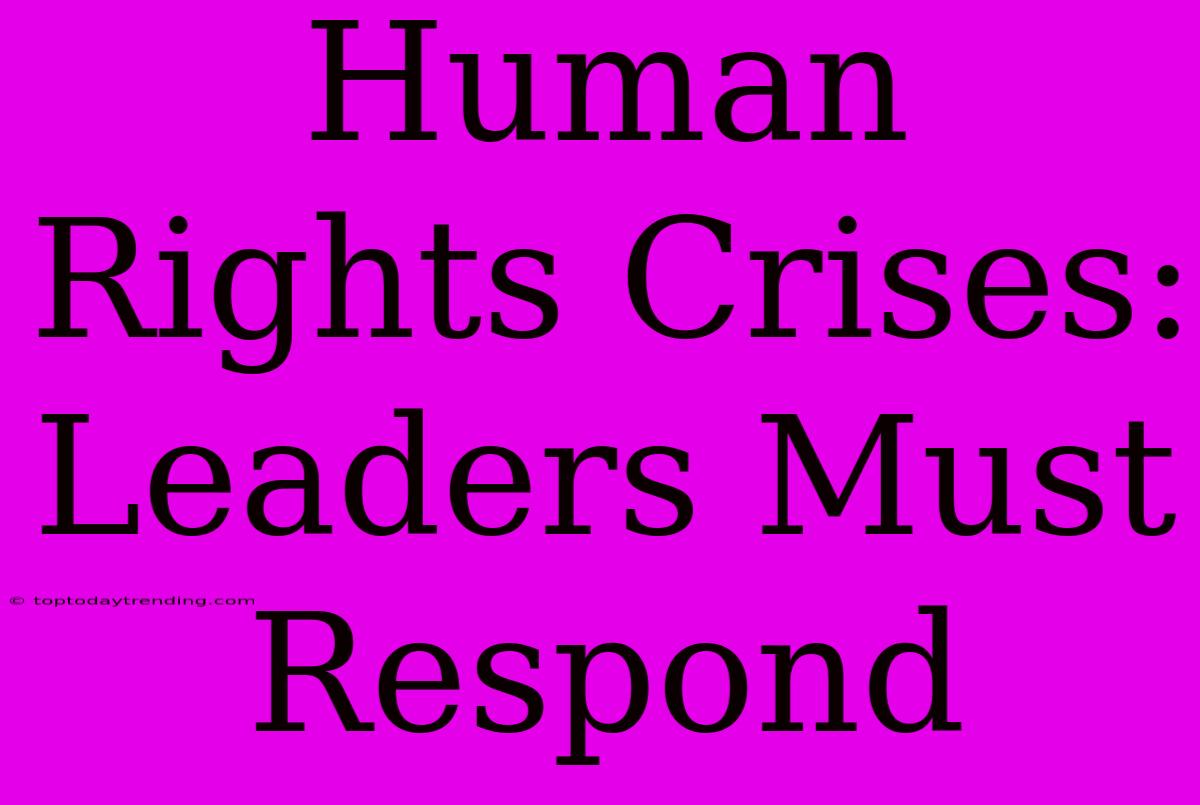Human Rights Crises: Leaders Must Respond
The world is facing a multitude of human rights crises, from widespread conflict and displacement to systemic discrimination and climate change. These crises threaten the lives and well-being of millions of people around the globe. It is imperative that world leaders take urgent and decisive action to address these challenges and protect the fundamental rights of all.
The Urgency of the Situation
The scale of human rights violations is alarming. Millions of people are displaced from their homes due to conflict, persecution, and natural disasters. Forced labor, human trafficking, and modern slavery continue to plague societies. Discrimination based on race, gender, sexual orientation, religion, and other factors persists, denying individuals their basic rights and opportunities.
Climate change exacerbates these crises, disproportionately impacting vulnerable communities and exacerbating existing inequalities. Rising sea levels, extreme weather events, and resource scarcity contribute to mass displacement, food insecurity, and conflict.
The Role of Leaders
World leaders have a moral and legal obligation to uphold human rights. This responsibility is enshrined in international human rights law, which sets standards for the protection of fundamental rights and freedoms. Leaders must:
1. Uphold and Enforce Human Rights Law:
- Strengthen national legislation to ensure that human rights are fully protected.
- Implement effective mechanisms for accountability and redress for human rights violations.
- Cooperate with international organizations to promote human rights globally.
2. Address Root Causes of Crises:
- Promote sustainable development to address poverty and inequality.
- Invest in education and healthcare to empower individuals and strengthen communities.
- Promote peace and reconciliation to resolve conflicts peacefully.
3. Protect Vulnerable Groups:
- Provide humanitarian assistance to displaced persons and refugees.
- Combat discrimination based on race, gender, sexual orientation, religion, and other factors.
- Ensure access to essential services for all, including healthcare, education, and housing.
4. Take Action on Climate Change:
- Implement ambitious climate policies to reduce greenhouse gas emissions.
- Invest in renewable energy sources and promote sustainable practices.
- Support vulnerable communities to adapt to climate change impacts.
Consequences of Inaction
Failure to address human rights crises will have devastating consequences. It will perpetuate cycles of poverty, inequality, and violence. It will undermine global security and stability. And it will erode trust in institutions and leaders.
By taking action, world leaders can help build a more just and equitable world for all. It is time to move beyond rhetoric and embrace concrete solutions that protect the fundamental rights of every individual. The time to act is now.

